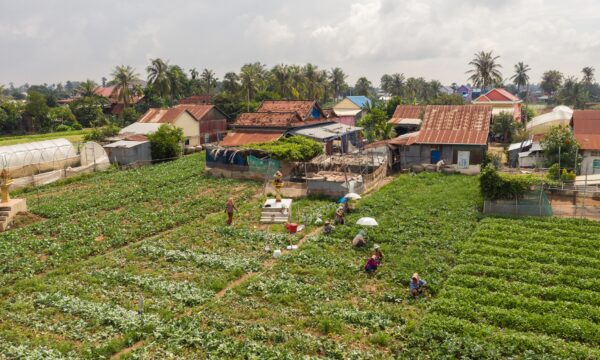 Over $17 billion was spent in 2012 on farm insurance claims for destroyed crops in the U.S., up from an average of $4.1 billion per year from 2001 until 2011. This record-breaking jump in insurance pay-outs was in large part due to extreme weather conditions over the past growing season. Drought, heat and hot wind accounted for 97 percent of destruction in Iowa alone, with the third largest agricultural GDP in the U.S. These figure come from a report published by the National Research Defense Council (NRDC) which argues that destructive conditions such as these are expected to become only more common, and action will have to be taken to restructure the insurance and pay-out system within the U.S. The question is whether these decisions will echo through emerging farm insurance markets abroad.
Over $17 billion was spent in 2012 on farm insurance claims for destroyed crops in the U.S., up from an average of $4.1 billion per year from 2001 until 2011. This record-breaking jump in insurance pay-outs was in large part due to extreme weather conditions over the past growing season. Drought, heat and hot wind accounted for 97 percent of destruction in Iowa alone, with the third largest agricultural GDP in the U.S. These figure come from a report published by the National Research Defense Council (NRDC) which argues that destructive conditions such as these are expected to become only more common, and action will have to be taken to restructure the insurance and pay-out system within the U.S. The question is whether these decisions will echo through emerging farm insurance markets abroad.
Farm insurance is a growing part of the environmental change adaptation strategies for many countries. Last month a study in Rwanda found that over 50,000 farms in the country were insured already by a government-backed programme. Insurance is even accessible now for smallholder farmers in Kenya via mobile phone. Though experts including the Inter-governmental Panel on Climate Change (IPCC) have warned that insurance is not a comprehensive answer to crop protection for farmers, it is one answer many countries are promoting to deal with worsening effects of climate change on crop production.
As both the NRDC and the Agricultural Ministry of Rwanda point out, insurance is necessary for farmers, but only coupled with improved practices adapted for extreme seasonal changes. Knowledge and information on climate-smart farming will complement the insurance scheme in Rwanda, meanwhile the NRDC lobbies in Washington for increased climate-focused extension practices for U.S. farmers. Strategies can combine low-tech planting and pruning techniques to innovative satellite weather mapping communications, but in either case comprehensive insurance will look for comprehensive prevention before pay-out.
Plant clinics connecting plant health advice directly to farmers coupled with a knowledge bank for increased global vigilance on plant health problems are two contributions Plantwise is making to this picture. In over 30 countries worldwide, Plantwise enables national extension systems to deliver better advice to farmers for the long-haul, helping to manage crop protection throughout unpredictable growing seasons to come. With more users under insurance schemes and record-breaking pay-outs globally, the push for adaptive farming practices is that much more critical.
Related News & Blogs
How plant clinics are strengthening crop health services in Bangladesh
When the first-ever plant clinic in Bangladesh opened in Dhaka in 2013, it initially faced a lack of interest due to its novelty and limited awareness among farmers. However, it went on to expand, providing advice to over 17,000 farmers and led to the…
2 July 2025




